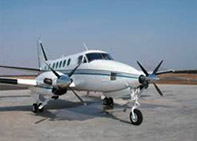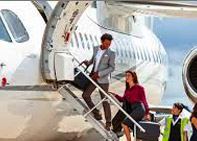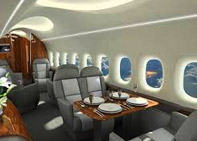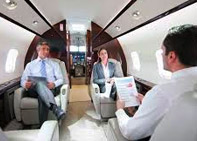These days, ‘Binge Flying’ is creating hype in Britain’s aviation industry. The recent action taken by Britain’s coalition government for the sake of the environment protection by refusing to build new runways around London to accommodate more planes is creating controversy everywhere.
Quite some time ago, the UK elections ended, where now, the new coalition government seems to be in its full action with activities like the cancellation of longstanding plans to build a third runway at Heathrow Airport in May 2010.
Things like Prime Minister David Cameron taking hold of the runaway expansion plans, aid climate change and high levels of greenhouse gas emissions from aviation, etc. have led to a platform for the difference in opinions.
The probability that he would also reject the consent for new runways at Gatwick and Stansted, London’s second-string airports, also creates waves in Britain’s aviation industry.
Well, the real cause could be an increase in the number of weekend flights that goes against the usual and easy recurrent flights, as England has become a focal point for low-cost airlines.
Other areas of concern like the 2008 Climate Change Act that keeps the government adhering to reductions in emissions by at least 34 % by 2020, compared to the levels that were reached in 1990, are also there.
The lure to make bigger airports is immense for urban cities as new businesses and tourism contribute to the country’s economy. Given this backdrop, the airports in Europe that are now mostly run by private companies favour the airport expansion and increase the number of runaways.
The enduring example is Heathrow airport, where communities nearby fought for almost a decade against the airport’s runway expansion. Though people have been complaining about noise and nitrous oxide pollution in its vicinity, Heathrow airport, is one of the world’s busiest airports and a central connection point for destinations in Europe, South Asia, and the Middle East, demonstrating that a third runway may indeed become a turning point in Britain’s aviation industry, benefiting the country’s economy.
Heathrow airport, which is infamous for its flight delays and endless queues; is the only airport of its size with just two runways. So, the need for a third runaway may decrease runway queues and planes circling the skies, thus, preventing air congestion and reducing emissions above Heathrow.
To be precise, the difference of opinions and highly politicized government decisions are causing a delay in the proper assessment of the situation and need.
In such a scenario, the option of a high-speed rail network projected to substitute short-haul flights would be a better alternative. Now, only time will tell as to how things turn out.







Leave a Reply
You must be logged in to post a comment.